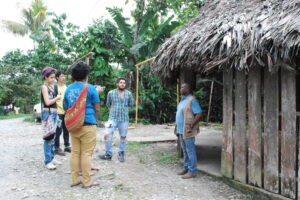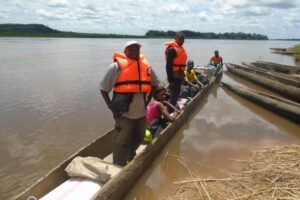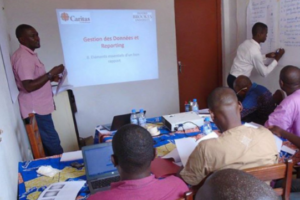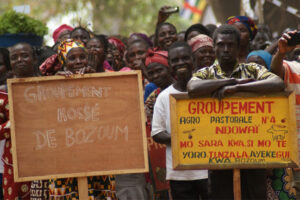GLANCES AT OUR PRACTICES
- A 360° self-evaluation: key to appropriate your capacity building and improving self-awareness (March 8, 2024)
- Do you know Mr. Globo? (Februari 29, 2024)
- Sustainable capacity building requires space and local support during implementation in daily operations (January 15, 2024)
- Putting procedure manuals into practice using our technical datasheets (January 15, janvier 2024)
- Allowing time to investigate realities and specificities of local actors in the field (January 5, 2024)
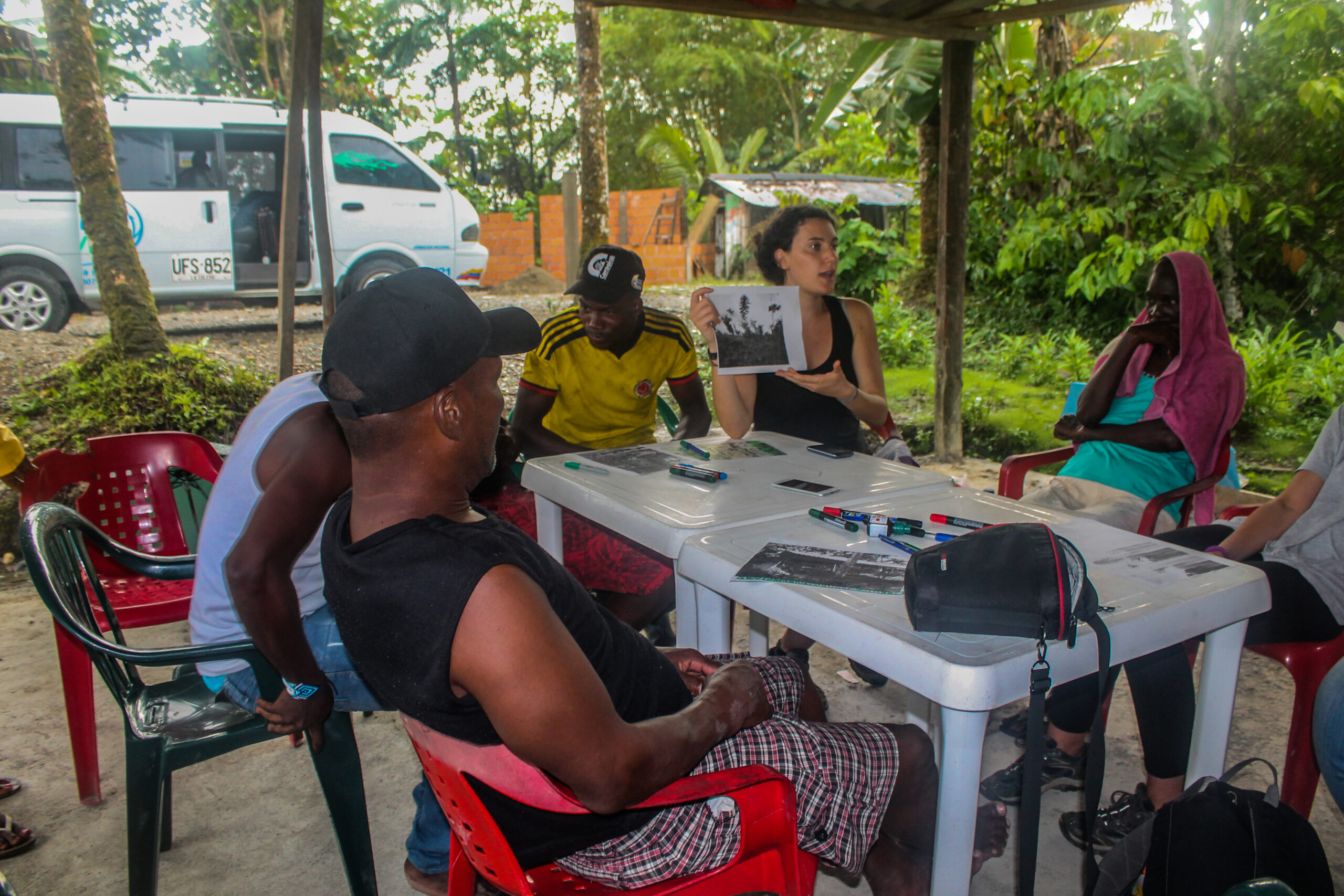

a 360° self-evaluation: key to appropriate your capacity building and improving self-awareness
8 mars 2024
Self-knowledge and self-awareness are essential conditions for gaining ownership on your own capacity strengthening plan. Self-evaluation therefore constitutes a major asset provided that it is not limited to checking off a list of needs and weaknesses, but allows one to discuss and identify one's strengths and good practices, one's specificities, one's identity to determine points for improvement and promote complementarity with other associations.
This is why the NGANGU capacity strengthening project begins with a 360° self-evaluation. Why 360°? First of all because the self-evaluation concerns all aspects of the association: at the operational level (strategy, governance, resources, personnel and projects operationalization), but also the various results for the beneficiaries, the members of the association, the partners, the very association and the society.
360° also because the different sectors and levels of the association are involved in this 360° self-evaluation: managers, governors, the executive (administration and logistics included), program and department managers. Everyone is invited to reflect on their responsibilities, experiences and points of view, in the interest of the association as a whole. This requires real trust and collegial participation and allows us to hear points of view that are not always shared.
The 360° self-evaluation is therefore not limited to a checklist of present or absent items. It consists of a dynamic and participatory reflection on the modes of operation and the various results achieved, 'proven' and 'verifiable', as well as on concrete actions which can improve the operations and results of the association. The result is a collective identification of the expertise to be valued and the necessary changes, but also of the means and strengths to achieve them.

Do you know Mr. Globo?
February 29, 2024
Mr. Globo is the happy owner of a (fictitious) Central African restaurant offering traditional dishes much appreciated by connoisseurs. From the outside, his restaurant does not look like much and does not correspond to international restaurants which seem to respect stricter standards but which standardize recipes. Monsieur Globo (like many local associations) has the ambition to develop his restaurant without compromising its values, its originality and with the available resources.
The example of Mr. Globo is not just illustrative. It develops throughout the training and supports the capacity strengthening of local associations participating in the Ngangu project for almost two years. The continued use of a fictitious example taken from the same cultural area but far from the professional field makes it possible to discuss the challenges and dilemmas that local associations pose such as the adoption of certain standards without abandoning one's cultural identity, the valorization of contextualized organic practices, the establishment of truly equitable partnerships, without denigrating or stigmatizing.
For local associations, it is also easier to check their understanding of the training provided by re-contextualizing them in the fictitious example of Mr. Globo's restaurant. In two years, Mr. Globo has become an indispensable partner of CERAR's capacity strengthening program.
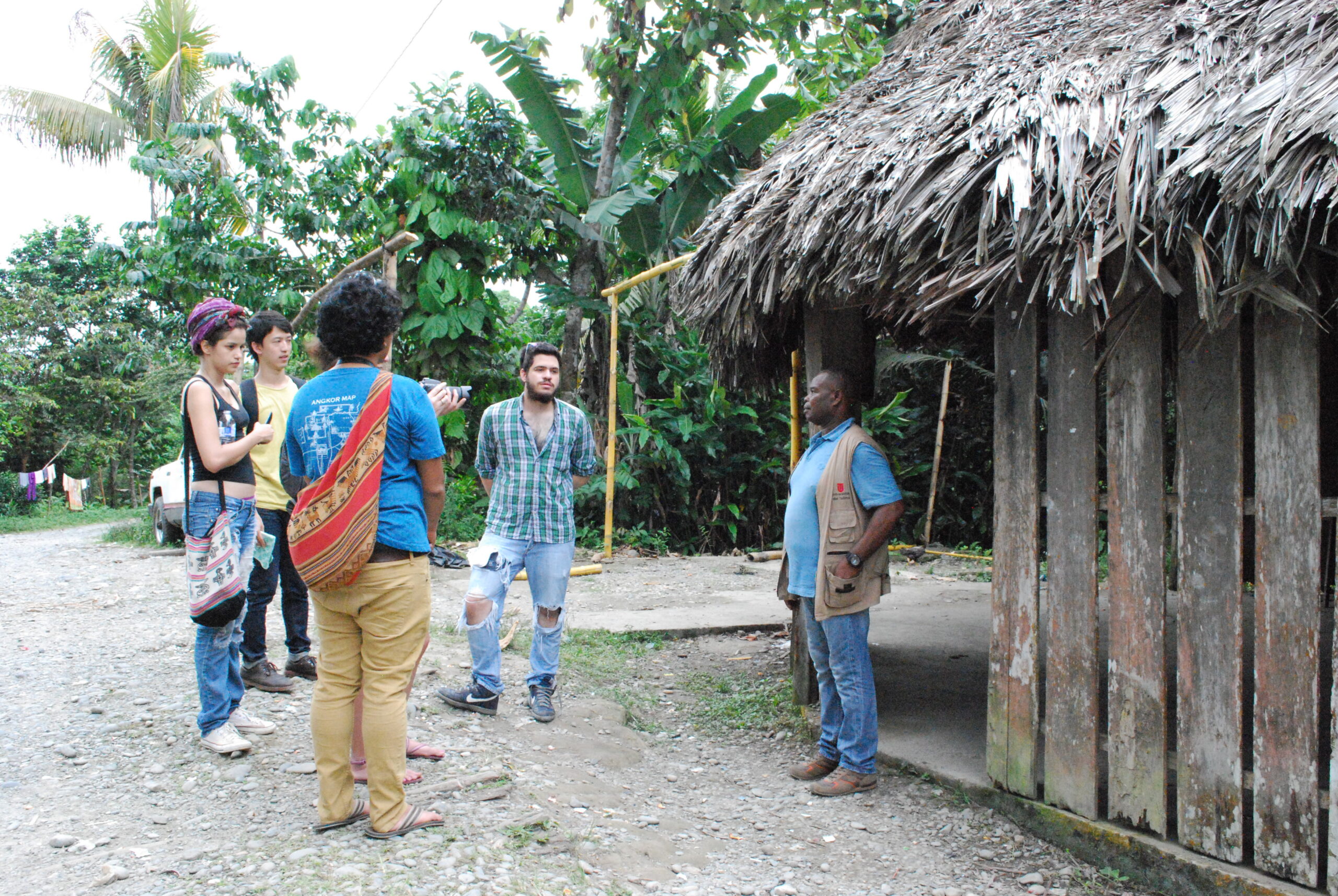
Sustainable capacity building requires space and local support during implementation in daily operations
5 janvier 2024
Strengthening local organizations is crucial for sustainable development and community resilience. An equitable Capacity Strengthening program should be oriented towards local organizations’ empowerment, be endogenous and build on existing capacities.
For a lasting and targeted impact, our capacity strengthening is built in a cyclical and progressive manner. Local stakeholders need time and space to experiment and become familiar with our objectives, methods and tools, and to be mentored in putting their learning into practice in the everyday, throughout the organization. Thus, our capacity strengthening programs are not linear. They aim for a process of continuous learning and creation of an enabling environment aimed at different levels of the organization.
This is the reason why NGANGU , CERAR's capacity strengthening program in the Central African Republic, is made up of successive nine-month cycles for gradual and progressive deepening. Each step provides space for a 360° self-evaluation to identify strengths and specificities in the everyday practices of these associations but also their areas for improvement. This is followed by time to apply, experiment and own the learning process, thanks to our contextualized proximity mentorship (CPM)..

Putting procedure manuals into practice using our technical datasheets
January 5, 2024
Transparent financial management is an essential condition for a local organization to establish a trust relationship in an international partnership. Yet it is often seen as the weak point of many local organizations.
To help associations apply their procedures manual, CERAR is setting up specific technical datasheets for each association based on their existing practices. These datasheets simplify and explain certain procedures step by step in order to adapt them to the level and pace of the associations and to those who, within the association, will have to put them into practice, without compromising quality standards. These datasheets therefore serve as a practical manual for members of local associations in their everyday operations such as for procurement , for the preparation of a mission, the development of job descriptions, etc.
The technical datasheets adapt the procedures manual to the local conditions of the associations in terms of their infrastructure (few equipped premises, means of communication), their staff (difficulty of understanding), and in terms of organizational culture (few systematization and capitalization).
Investigating realities and specificities of local actors in the field requires time
January 15, 2024
